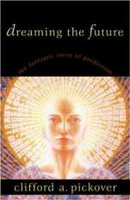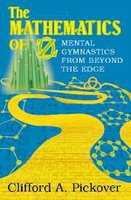Saturday, February 25, 2006
Martin Gardner's God
Martin Gardner (born 1914, Tulsa, Oklahoma) is an American recreational mathematician, magician, skeptic, and author of the long-running but now discontinued "Mathematical Games" column in Scientific American.
While critical of organized religions, Gardner believes in God, claiming that this belief cannot be confirmed or disconfirmed by reason. At the same time, he is skeptical of claims that God has communicated with human beings through spoken or telepathic revelation or through miracles in the natural world.
Martin Gardner's philosophy may be summarised as follows: There is nothing supernatural, and nothing in human reason or visible in the world to compel people to believe in God. The mystery of existence is enchanting, but a belief in The Old One comes from faith without evidence. However, with faith and prayer people can find greater happiness than without. If there is an afterlife, the loving Old One is real. [To an atheist] "the universe is the most exquisite masterpiece ever constructed by nobody", from G. K. Chesterton, is one of Martin's favorite quotes.
Gardner says in Skeptical Inquirer, "Shortly before he died, Carl Sagan wrote to say he had reread my Whys of a Philosophical Scrivener and was it fair to say that I believed in God solely because it made me "feel good." I replied that this was exactly right, though the emotion was deeper than the way one feels good after three drinks. It is a way of escaping from a deep-seated despair. "
Source 1, Source 2
While critical of organized religions, Gardner believes in God, claiming that this belief cannot be confirmed or disconfirmed by reason. At the same time, he is skeptical of claims that God has communicated with human beings through spoken or telepathic revelation or through miracles in the natural world.
Martin Gardner's philosophy may be summarised as follows: There is nothing supernatural, and nothing in human reason or visible in the world to compel people to believe in God. The mystery of existence is enchanting, but a belief in The Old One comes from faith without evidence. However, with faith and prayer people can find greater happiness than without. If there is an afterlife, the loving Old One is real. [To an atheist] "the universe is the most exquisite masterpiece ever constructed by nobody", from G. K. Chesterton, is one of Martin's favorite quotes.
Gardner says in Skeptical Inquirer, "Shortly before he died, Carl Sagan wrote to say he had reread my Whys of a Philosophical Scrivener and was it fair to say that I believed in God solely because it made me "feel good." I replied that this was exactly right, though the emotion was deeper than the way one feels good after three drinks. It is a way of escaping from a deep-seated despair. "
Source 1, Source 2
Comments:
<< Home
Gardner was a skeptic of the debunker type in the essays collected in the book Science: Good, Bad, and Bogus. But people like Puthoff and Targ, the remote viewers he debunked, keep coming back and selling their easy-bake paranormalism to the gullible public. And you could tell he enjoyed the possibilities when he discussed pseudosciences and so on in those articles, it was just his role to educate by laughing at their errors.
So why has Gardner settled for such a pedestrian version of monotheistic religion? If you're going to believe beyond the evidence, why not believe boldly?
So why has Gardner settled for such a pedestrian version of monotheistic religion? If you're going to believe beyond the evidence, why not believe boldly?
I credit Gardner with encouraging me at an early age to think fourth-dimensionally, mainly through his book "Aha! Gotcha." Freeing me from certain logical constraints meant that I then wrote an unassigned treatise on my personal theories of time travel (mostly informed by "Back to the Future" and episodes of "G.I. Joe") to rave reviews when I was in fourth grade.
I do wish Gardner wasn't so often mentioned in the same breath as James Randi, who I consider less a debunker than a spoilsport, but strange bedfellows and all that rot.
I do wish Gardner wasn't so often mentioned in the same breath as James Randi, who I consider less a debunker than a spoilsport, but strange bedfellows and all that rot.
Sonny, if you are asking "why didn't Gardner embrace polytheism?" it is probably because Plato (Euthyphro dialogue) totally debunked it thousands of years ago and there has never been a strong refutation to Plato's argument. Martin, it seams could believe in a god outside of reason but not in gods who were unreasonable.
Post a Comment
<< Home
 Godlorica
Godlorica



























